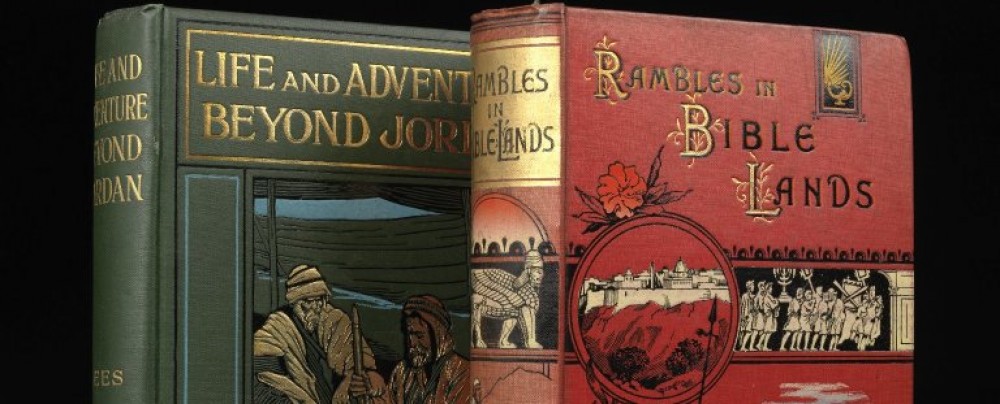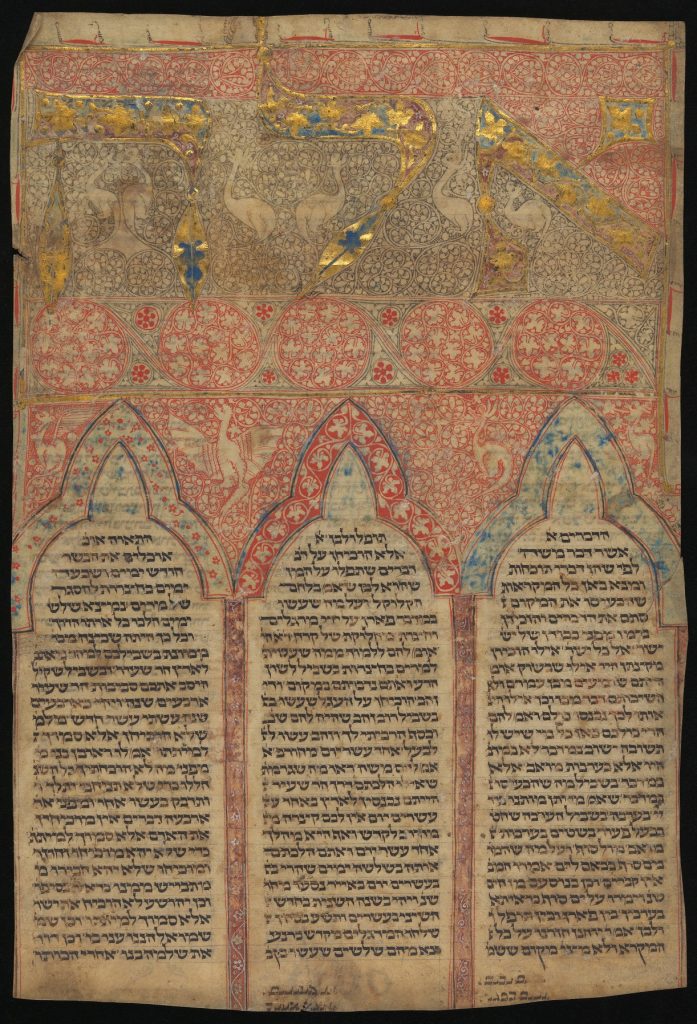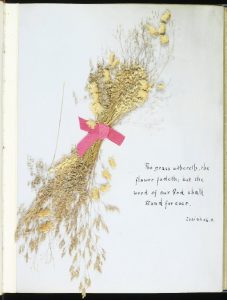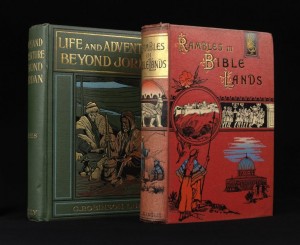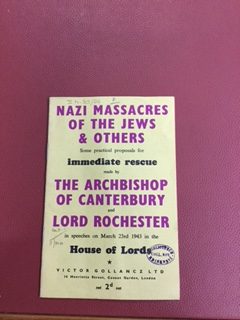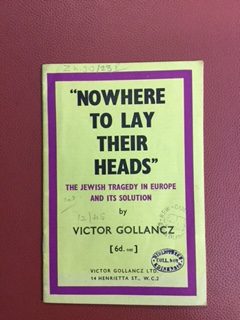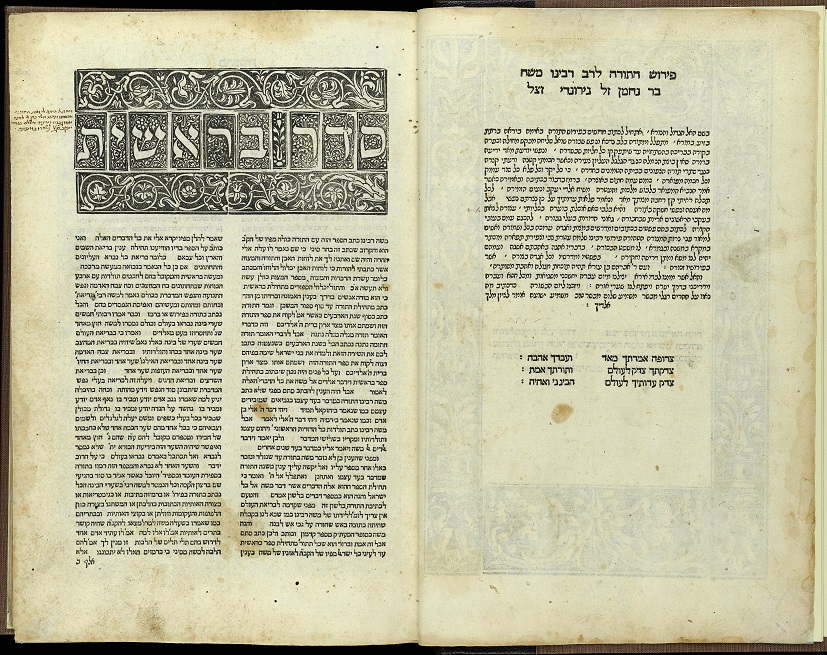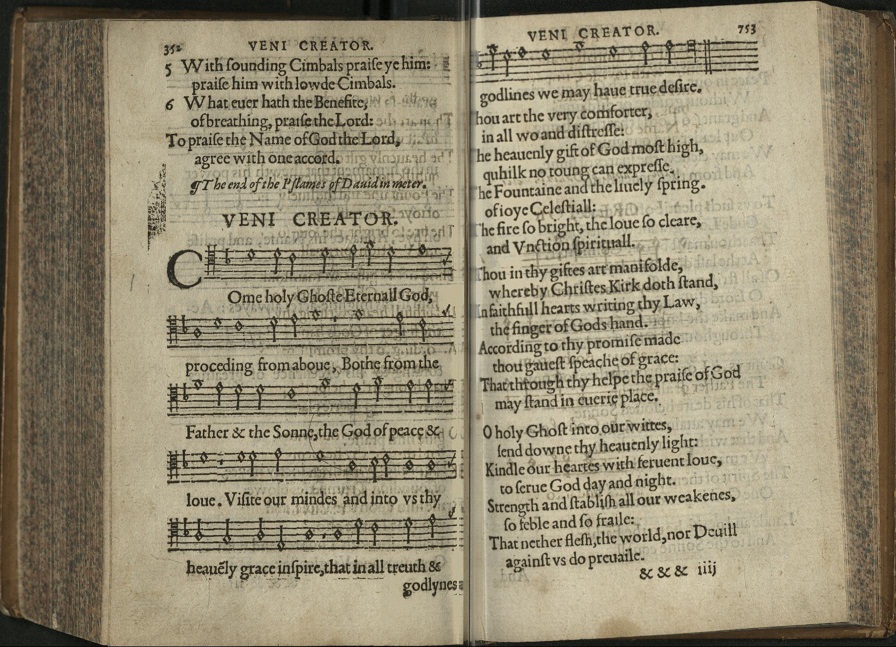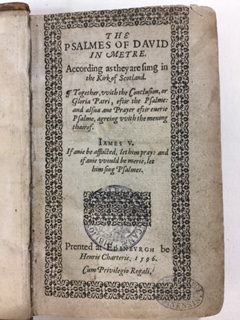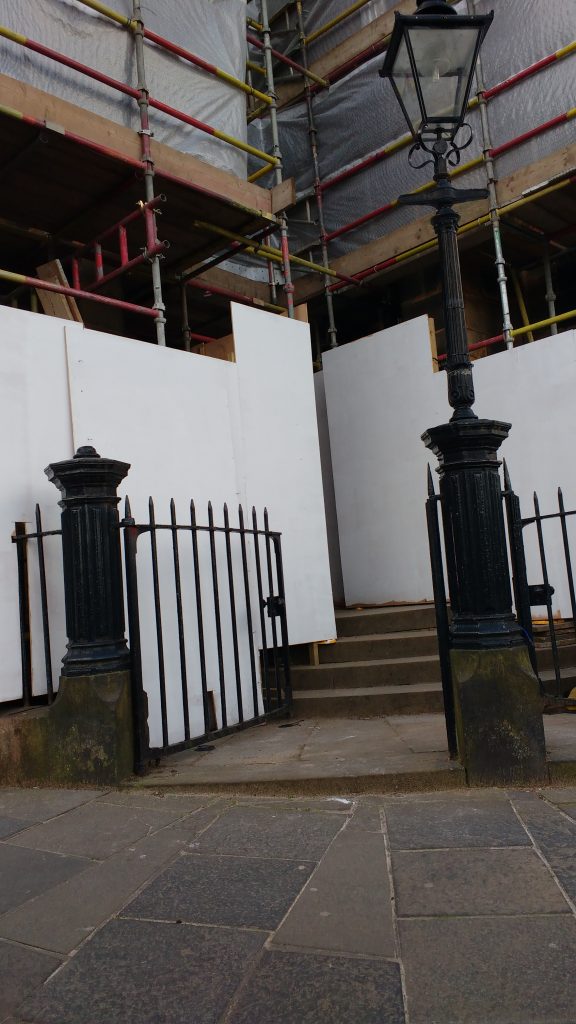A guest post from MSc Book History and Material Culture student Holly Sanderson

Entrance to the Library from New College Courtyard
As part of the Master’s degree in Book History and Material Culture at the University of Edinburgh, each student is required to undertake a ten-week work placement at a cultural heritage institution. I have long focused my academic interest upon aspects of divinity, especially liturgical and devotional texts, and as such, it was a pleasure to learn that my placement would be at New College Library. Now, with just one workday left until the placement’s end, I am taking the opportunity to reflect upon my time here – the treasures found, tasks undertaken, and skills learnt.
The projects I’ve been working on fall into roughly three areas: collections assessment, collections care, and exhibitions. I’ve handled several different collections, including the Chinese collection donated to New College Library in 1921 by the Rev. James W. Inglis, the Portraits collection from the New College archives, and the Norman Walker Porteous Papers. I’ve also been working with a sequence of very dusty unaccessioned material and a sequence of uncatalogued pre-1800 books. I was on the lookout for any items with copy-specific features and/or interesting provenance that could heighten potential research value. Collections care is another important factor in library management, and when handling each item I would assess its condition, making a note of particularly bad damage and tying any fragile items with cotton conservation tape. One particularly interesting item I came across was a photo album collected by Bishop Whipple from Minnesota. After spending most of the day sifting through albums of British ministers and notable men, it was a surprise to encounter portraits of nineteenth-century North American Indians!
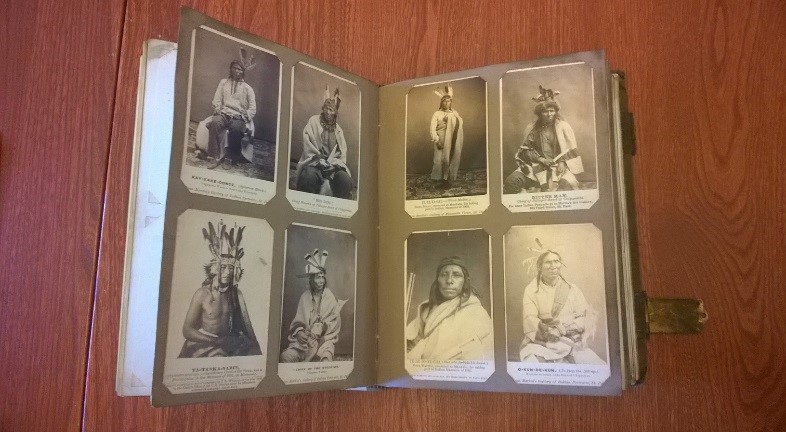
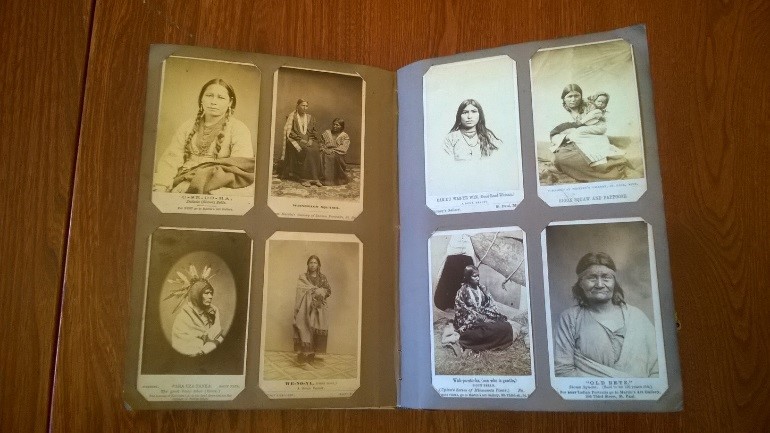
Images from Bishop Whipple’s Photo Album
Anyone who has visited the library will be able to understand why my romantic sentiments were only encouraged by the stunning neo-gothic building that is New College. However, as the placement progressed, I came to realise the problem with my original perspective: not only was it impractical, it was selfish. My bibliophilic daydream made room for me only, hoarding rare books like a dragon with its gold, when the true importance of cultural heritage lies in it being openly accessible to all. Enabling public access to special collections can generate significant environmental, economic and social benefits: it boosts the economy, aids social inclusion and cohesion, advances understanding and education, and can even contribute to wider agendas such as health outcomes, the environment, and urban planning.
The importance of cultural heritage to humanity is perhaps recognised most clearly through its destruction. Consider ISIL’s treatment of Palmyra and Mosul, or the Taliban’s destruction of the Buddhas of Bamiyan in Afghanistan in 2001 – both attempts to destroy a community’s sense of shared history and identity. However, heritage is mostly lost not by wilful destruction but by simple neglect, demonstrating the constant need for good collections care and management. Any loss of heritage highlights not only its importance but also its irreplaceability. This, I have come to realise, is one of the clearest arguments for the importance of collections care and management as a profession: preserving our history to pass on to future generations.

Image courtesy of http://lotr.wikia.com
I would like to thank Christine Love-Rodgers, and all of the staff at New College Library, for allowing me to see behind the scenes and get to grips with the everyday tasks that ensure these collections can be accessed, enjoyed, and preserved. Gone are my fantasies of green leather-topped desks, lamplight, and spending every day surrounded by mountains of fifteenth-century manuscripts, but I have found the reality that has replaced these daydreams to be just as exciting.
Holly Sanderson
April 2017
 Over this summer, our three student interns, Thomas, Holly and Mila have been hard at work behind the scenes in New College Library’s Stack III. Their task was to work with the X Collection, a collection of large (folio) early printed books. Over the years this collection had gathered a layer of dust, which our interns carefully removed with a museum book hoover. Having our interns handling each of these books was also a great opportunity to learn more about them, and to understand how the collection was composed in terms of date, language and place of publication. These details were logged using methodology adapted from projects on collections in National Trust Houses.
Over this summer, our three student interns, Thomas, Holly and Mila have been hard at work behind the scenes in New College Library’s Stack III. Their task was to work with the X Collection, a collection of large (folio) early printed books. Over the years this collection had gathered a layer of dust, which our interns carefully removed with a museum book hoover. Having our interns handling each of these books was also a great opportunity to learn more about them, and to understand how the collection was composed in terms of date, language and place of publication. These details were logged using methodology adapted from projects on collections in National Trust Houses.
